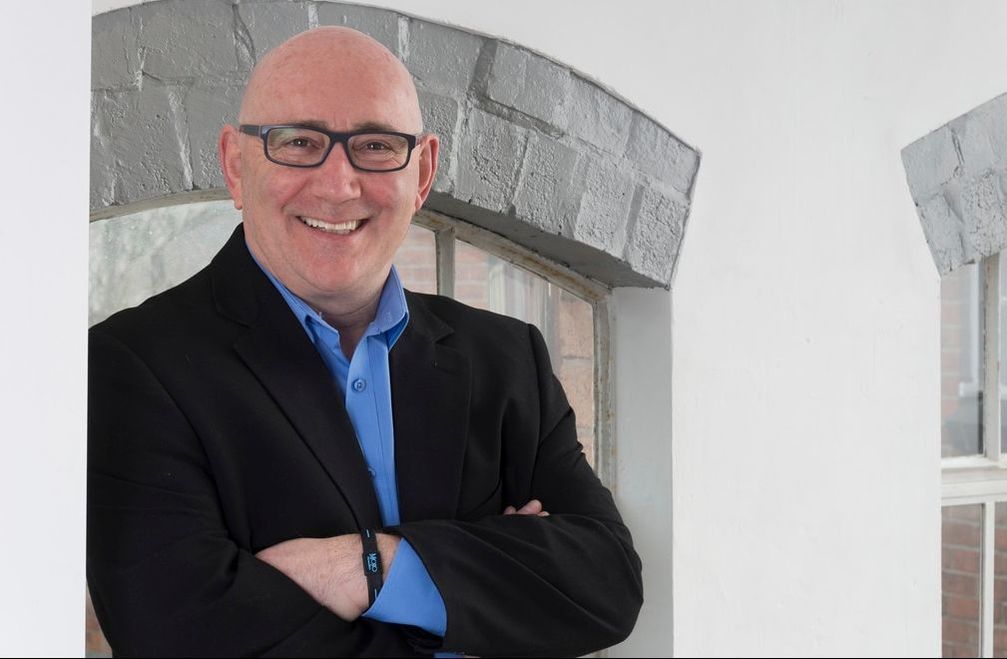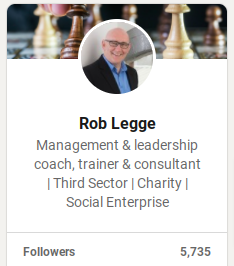One of my clients recently asked me how you establish rapport with your team. As a trainer it's something I need to do with a new group of strangers each time I run an open management course.
It is, however, a very difficult question to answer!
I'm not sure I'm the best person to comment about how I create rapport, but I can share what I do. It may contain some small insights that might help you reflect on your approach.
It is, however, a very difficult question to answer!
I'm not sure I'm the best person to comment about how I create rapport, but I can share what I do. It may contain some small insights that might help you reflect on your approach.
Be yourself
Rapport is best established when being yourself; it's an unconscious natural act.
I am always authentic in my communication to trainees. I let them know in words, tone and body language that I am there to help them learn. I make sure they know this is a partnership. That learning/discovery will need effort from them. That some of the best ideas will come from each other.
I listen hard to all the comments and contributions made. Particularly when they introduce themselves. I ensure I make at least one reference to each person's comments. This is rarely immediate, but perhaps in the introductions one of them might mention they have a time management issue. An hour later, we end up discussing priorities and I might particularly refer to the person's issue. I find this helps validate the person has been heard, and seems to encourage further contribution and commitment to the training.
I am always authentic in my communication to trainees. I let them know in words, tone and body language that I am there to help them learn. I make sure they know this is a partnership. That learning/discovery will need effort from them. That some of the best ideas will come from each other.
I listen hard to all the comments and contributions made. Particularly when they introduce themselves. I ensure I make at least one reference to each person's comments. This is rarely immediate, but perhaps in the introductions one of them might mention they have a time management issue. An hour later, we end up discussing priorities and I might particularly refer to the person's issue. I find this helps validate the person has been heard, and seems to encourage further contribution and commitment to the training.
Encourage laughter and participation
I also bring humour into my conversations. Often seeing the absurd (and a lot of leadership stuff is managing the absurd!) in giving anecdotes of my past failures and accidental successes.
This relaxes the room and laughter encourages participation.
In addition as I establish rapport I also challenge the trainees to do things they wouldn't normally volunteer for (role play) and push themselves to do better than they are currently doing. This challenging process further cements our rapport, as they have to take responsibility for their own learning.
My feedback sheets show lots of evidence of learning and enjoyment. The ones that give me the most pleasure are those that say "I now have the confidence to try it."
I feel we have connected.
This relaxes the room and laughter encourages participation.
In addition as I establish rapport I also challenge the trainees to do things they wouldn't normally volunteer for (role play) and push themselves to do better than they are currently doing. This challenging process further cements our rapport, as they have to take responsibility for their own learning.
My feedback sheets show lots of evidence of learning and enjoyment. The ones that give me the most pleasure are those that say "I now have the confidence to try it."
I feel we have connected.
"Rob was excellent at delivering the course (Being the best you can be at work). I particularly engaged with his ability to break down concepts into individual, comprehensive units, which then built up into the big picture of how to maximise my potential at work. Also, top charisma, and wonderful that he had a laugh with us!" - Jacob Standbridge, BVSC
Try it
I don’t get it right all the time. Each person is different. Therefore each group I train is different, and so rapport building requires an attempt to understand the individuals and group for the first time. Any rules you think you can work by are constantly challenged, adapted and adjusted. Any parent of more than one child will recognise the truth of that last statement.
Perhaps this is why I love what I do.
The general content of my courses might be fairly stable, but it is the individuals who participate that are my challenge. That's why at the start of each training session my primary objective is to establish rapport. It's essential to facilitate the learning of these unique individuals in front of me now.
If you're interested in finding out more about my training programme visit my training page.
Perhaps this is why I love what I do.
The general content of my courses might be fairly stable, but it is the individuals who participate that are my challenge. That's why at the start of each training session my primary objective is to establish rapport. It's essential to facilitate the learning of these unique individuals in front of me now.
If you're interested in finding out more about my training programme visit my training page.





